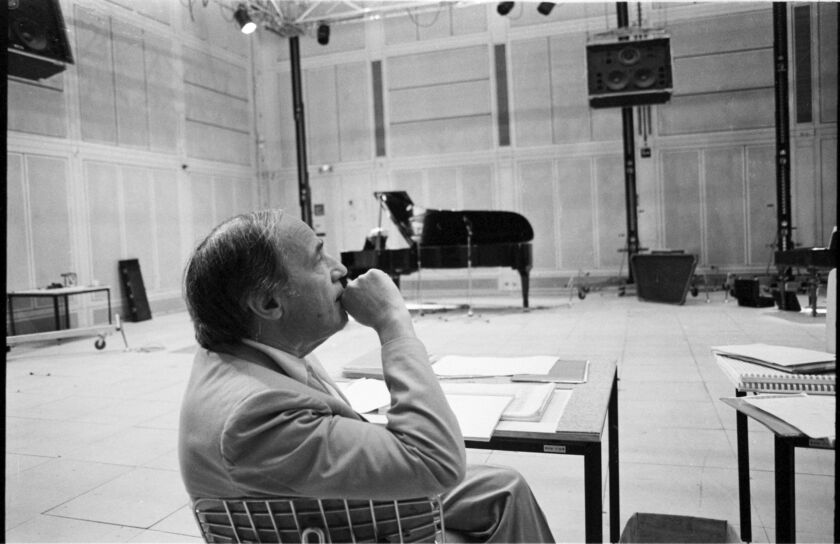
À PIERRE
‘Two words were missing from his vocabulary: awe and reverence,’ Olivier Messiaen once recalled of his former student Pierre Boulez. The young composer not only had a penchant for mathematics, but was also gifted with an unerring outer and inner ear, capable of listening to music and language with a similar analytical attentiveness, of ‘hearing’ it in his mind’s eye: ‘Le compositeur, c’est l’œil qui imagine l’oreille.’
As a composer, Boulez offered living proof that the term ‘avant-garde’ was of musical significance, that it originated from the French — and, at the same time, from military parlance. None of the modernist comrades-in-arms he was closest to, neither Karlheinz Stockhausen nor Luigi Nono, were as ardent or combative in acting as a vanguard against all kinds of outdated artistic ideas. For Pierre Boulez, time always marched forward.
He wanted to write music that was at once cerebral and emotional, in which beauty could be appraised and intellect felt. The Gallic sensuality of Debussy and Ravel was as much an influence as the clarity of Bach’s tightly structured counterpoint. And he was a perfectionist. Not one who was paralysed by the high standards he set for himself, but a composer who kept refining his works until he was satisfied with the result.
As a conductor, Boulez’s interest was likewise exclusively drawn to more innovative repertory — and here, he realized his precisely defined aims while shunning the rigidity of a baton and audience-pleasing theatrics. ‘Structure’ was one of his favourite words. At the Salzburg Festival, he embarked on a musically fruitful journey with the Vienna Philharmonic: a collaboration marked by deep mutual respect, which gave rise to feats of artistic excellence in his later years.
‘À Pierre’ celebrates the pioneering sensualist and poetic revolutionary Pierre Boulez on the 100th anniversary of his birth.
Walter Weidringer
Translation: Sebastian Smallshaw
